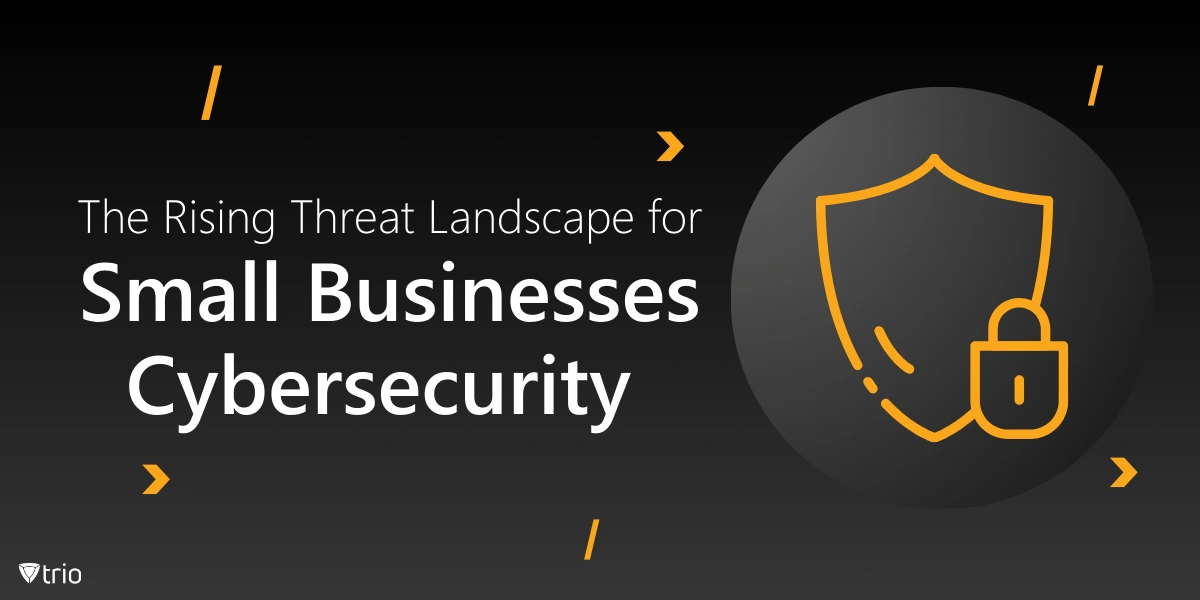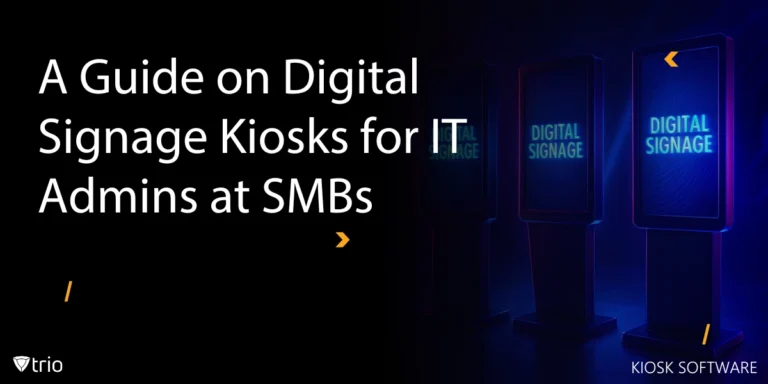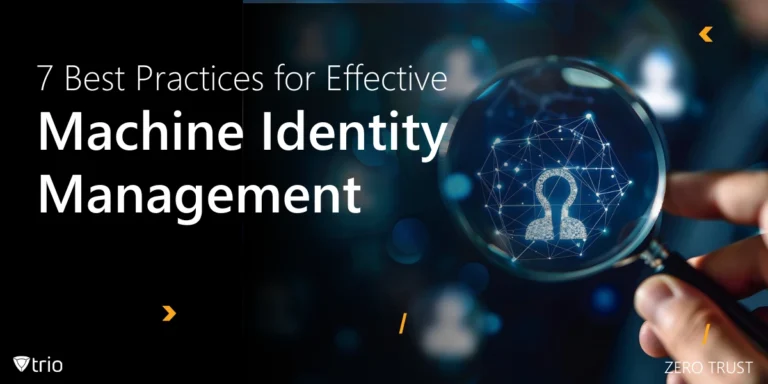Small businesses are increasingly becoming prime targets for cybercriminals. Contrary to the misconception that only large corporations are at risk, cyber attackers are well aware that small businesses often lack the robust cybersecurity measures of their larger counterparts, making them easier targets. From ransomware attacks to phishing scams, the threats are growing more sophisticated, posing serious risks to small businesses’ cybersecurity.
Cybersecurity for small businesses is not just about technology; it’s about safeguarding the trust of customers, partners, and employees. A single cyber incident can have devastating consequences, including financial loss, legal liabilities, and damaged brand reputation. This blog will explore essential cybersecurity practices that small businesses can adopt to protect themselves from these growing threats.
Understanding the Common Threats Facing Cybersecurity for Small Businesses
Small businesses face a wide range of cyber threats, each with its own set of challenges. One of the most common is phishing, where cybercriminals send deceptive emails or messages to trick employees into revealing sensitive information or downloading malicious software. Phishing attacks can lead to data breaches, financial loss, and unauthorized access to company systems.
Ransomware is another prevalent threat, where malicious software encrypts a business’s data and demands a ransom for its release. Ransomware attacks can cripple operations, especially for small businesses that rely on access to their data to function. Similarly, malware infections can disrupt business operations, compromise sensitive data, and spread rapidly across networks.
Insider threats, where employees or partners intentionally or unintentionally cause security breaches, are also a significant concern. This can include everything from sharing passwords carelessly to deliberately stealing data. In 2024, around the world, a data breach cost $4.88 million on average. Understanding these common threats is the first step in building a robust cybersecurity strategy that keeps your business safe.
7 Common Cybersecurity Solutions for Small Businesses
Here are some common solutions that can be implemented by small businesses as a cybersecurity plan. These solutions should all be implemented as apart of a vulnerability management strategy.
1- Implementing Strong Password Policies
Passwords are the first line of defense against unauthorized access, but weak or reused passwords remain a major vulnerability for many small businesses. Implementing strong password policies is crucial to enhance SMB security. Employees should be encouraged to create complex passwords that combine upper and lower case letters, numbers, and special characters. Passwords should be changed regularly, and the use of password management tools can help employees securely store and manage their credentials.
Multi-factor authentication (MFA) adds an additional layer of security by requiring users to provide two or more verification factors, such as a password and a one-time code sent to their phone, to access accounts. This makes it much harder for cybercriminals to gain unauthorized access, even if a password is compromised.
2- Keeping Software and Systems Updated
Outdated cybersecurity software for small business is one of the easiest ways for cybercriminals to gain access to business systems. Many cyber attacks exploit known vulnerabilities in software that hasn’t been updated or patched. Small businesses should ensure that all operating systems, applications, and devices are kept up-to-date with the latest security patches.
Automating software updates is an effective way to ensure that critical patches are applied promptly, reducing the risk of vulnerabilities being exploited. Additionally, investing in endpoint security solutions that offer automatic updates and real-time threat detection can provide an added layer of protection for small businesses.
3- Employee Training: The Human Firewall
Employees are often the weakest link in cybersecurity, but they can also be your greatest asset in preventing cyber attacks. Regular cybersecurity training can help employees recognize phishing attempts, understand the importance of secure password practices, and follow company protocols to safeguard sensitive information, effectively making them human firewalls.
Training should cover topics such as identifying suspicious emails, safe internet browsing habits, and procedures for reporting potential security incidents. By empowering employees with knowledge and best practices, businesses can significantly reduce the likelihood of a successful cyber attack. Cybersecurity awareness should be an ongoing effort, with regular updates and refresher courses to keep security top of mind.

4- Securing Wi-Fi Networks and Remote Work Environments
With the rise of remote work, securing Wi-Fi networks has become more critical than ever. Small businesses should ensure that their Wi-Fi networks are encrypted and protected with strong passwords. Guest networks should be separate from business networks to prevent unauthorized access to sensitive data.
For remote work, businesses should require employees to use secure connections, such as virtual private networks (VPNs), when accessing company resources from outside the office. VPNs encrypt internet traffic, making it much harder for cybercriminals to intercept sensitive information. Additionally, implementing Mobile Device Management (MDM) solutions can help businesses manage and secure devices that access company data remotely.
5- Backing Up Data Regularly
Regular data backups are essential to protect against data loss from cyber attacks, hardware failures, or accidental deletions. Small businesses should implement a robust backup strategy that includes automated, scheduled backups stored in secure, offsite locations or cloud services. Ensuring that backups are encrypted and regularly tested for data integrity will help ensure that critical data can be restored quickly in the event of an incident.
Having a reliable backup system can also reduce the impact of ransomware attacks, as businesses can restore data without having to pay the ransom. It’s important to back up not just data, but also system configurations and applications to ensure a smooth recovery process.
6- Using Firewalls and Anti-Malware Solutions
Firewalls act as a barrier between your business network and the outside world, monitoring and filtering incoming and outgoing traffic based on established security rules. Implementing both network and host-based firewalls can help prevent unauthorized access and protect sensitive data.
Anti-malware solutions like other cybersecurity tools for small businesses provide an additional layer of security by detecting and blocking malicious software before it can cause damage. Small businesses should ensure that all devices, including employee laptops and mobile devices, are equipped with up-to-date anti-malware software that includes real-time scanning capabilities.
7- Developing an Incident Response Plan
Despite best efforts, no business is entirely immune to cyber incidents. Having an incident response plan in place ensures that your business is prepared to act quickly and effectively in the event of a security breach. The plan should outline specific steps for identifying, containing, and recovering from cyber incidents, as well as communication protocols for notifying affected stakeholders.
Regularly reviewing and testing the incident response plan will help ensure that employees know their roles and can act decisively in a crisis. Being prepared can minimize the damage of a cyber attack and help your business recover more quickly.
Conclusion
Small businesses cannot afford to overlook cybersecurity. By implementing strong security practices, training employees, and investing in the right tools, you can protect your business from the growing threat of cyber attacks. Trio’s Mobile Device Management solution offers comprehensive security features to help small businesses manage and secure their devices, enhancing overall cybersecurity.
Want to learn how Trio can help protect your small business? Try our free demo today and see how our MDM solution can safeguard your digital assets and keep your business secure.
Get Ahead of the Curve
Every organization today needs a solution to automate time-consuming tasks and strengthen security.
Without the right tools, manual processes drain resources and leave gaps in protection. Trio MDM is designed to solve this problem, automating key tasks, boosting security, and ensuring compliance with ease.
Don't let inefficiencies hold you back. Learn how Trio MDM can revolutionize your IT operations or request a free trial today!





